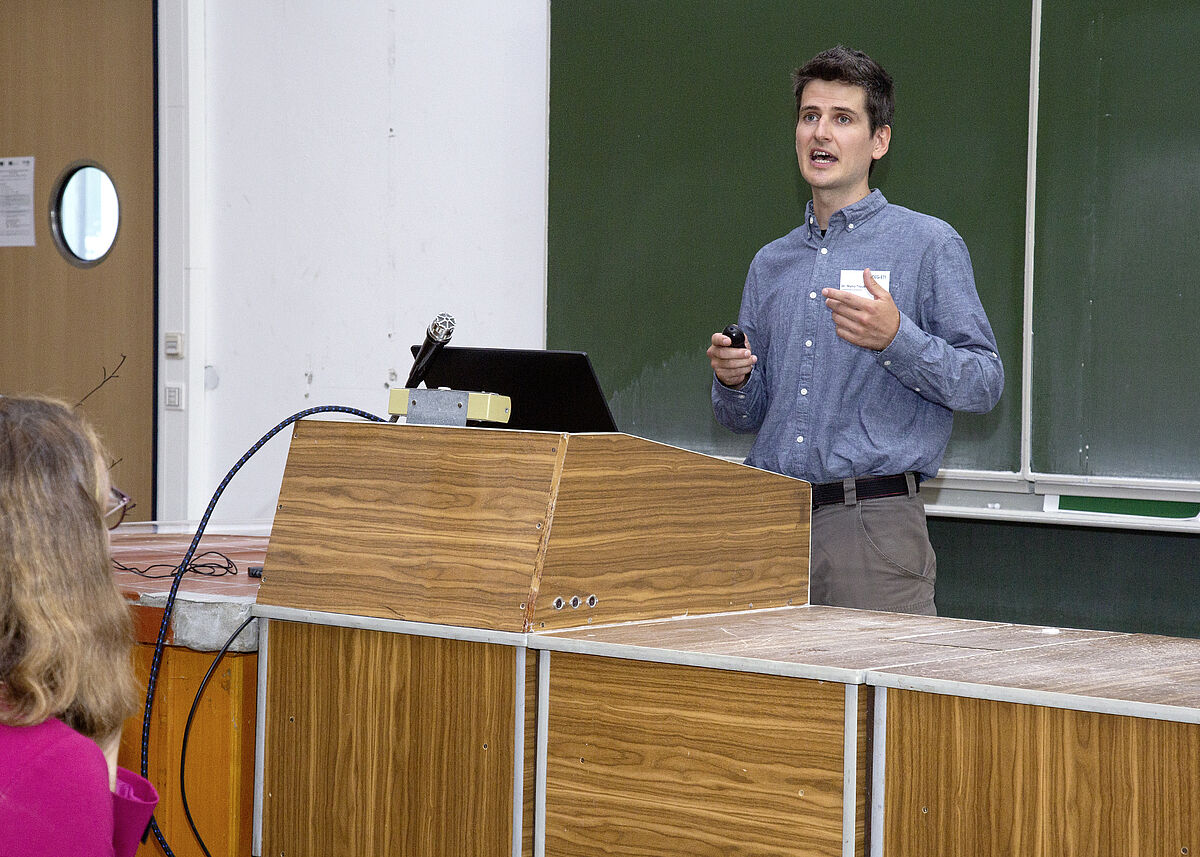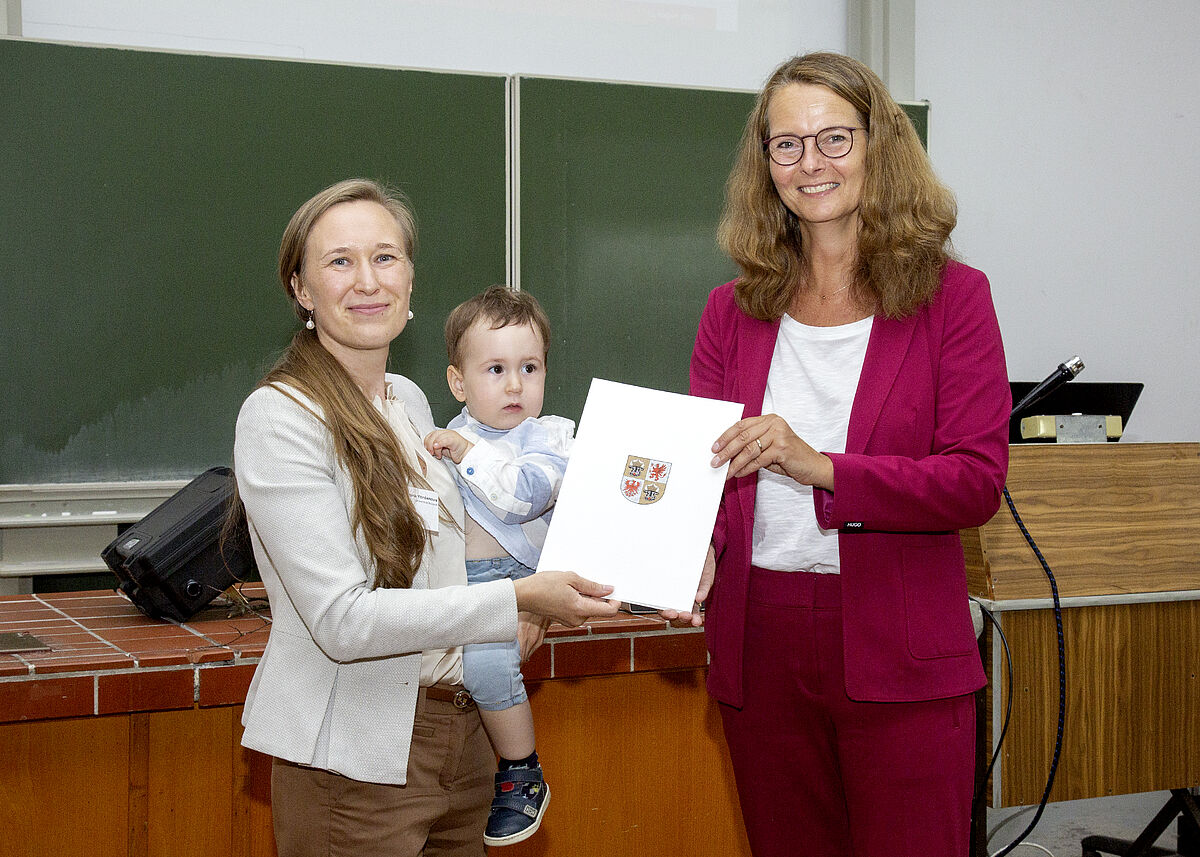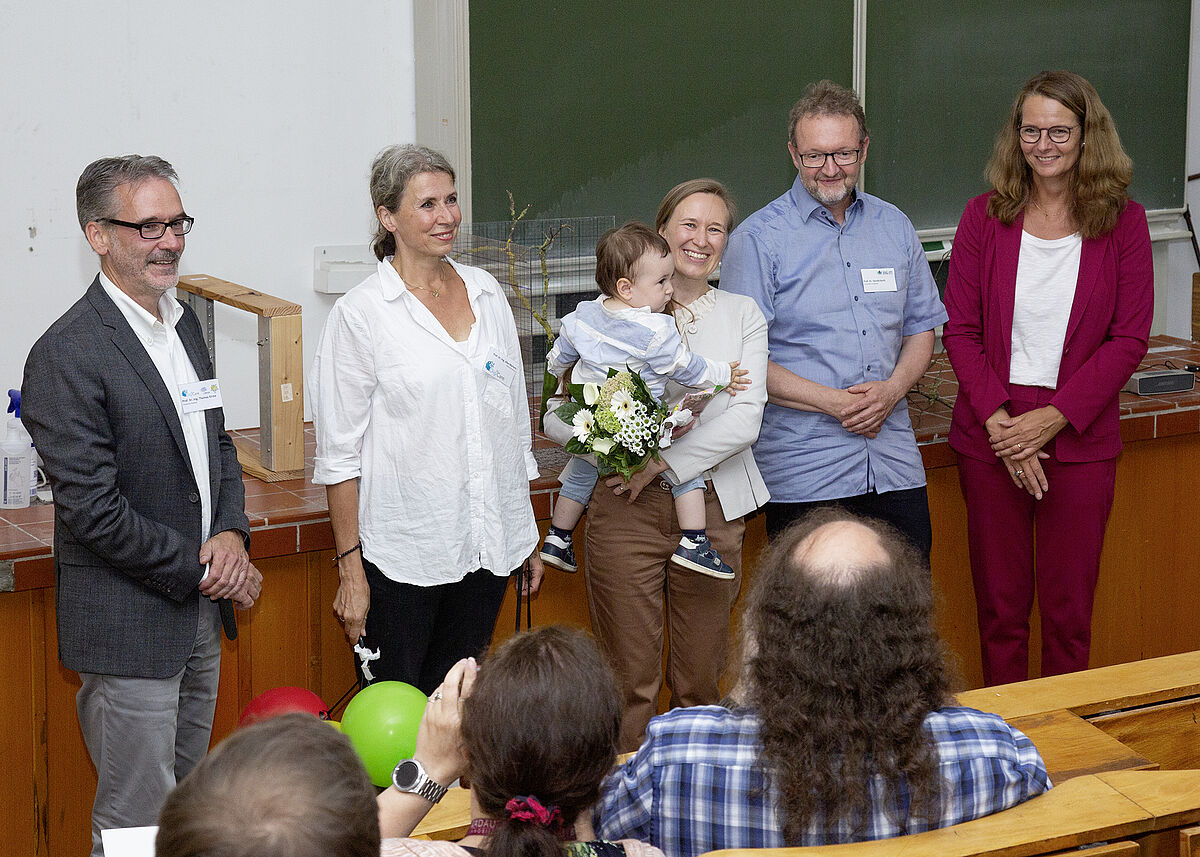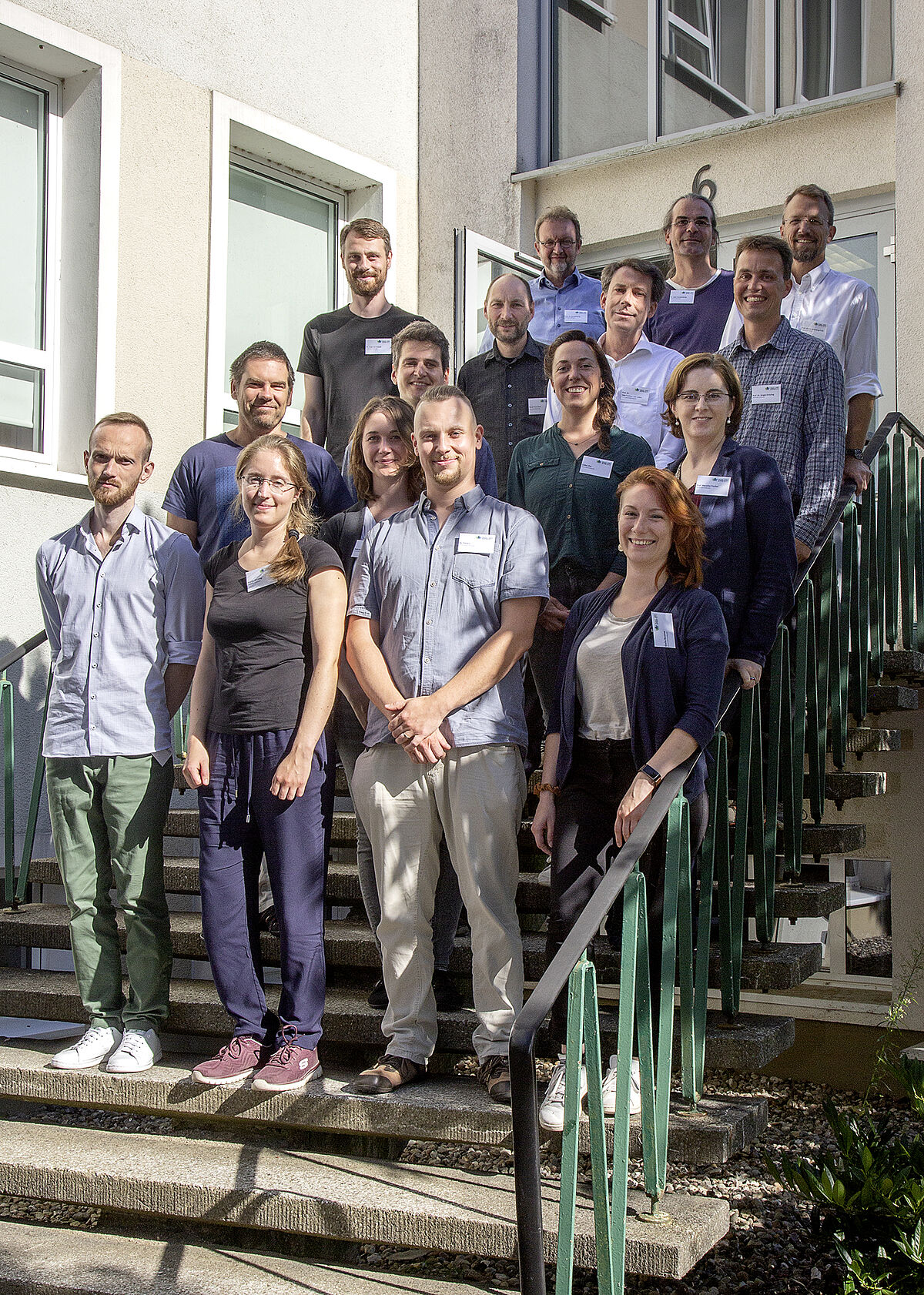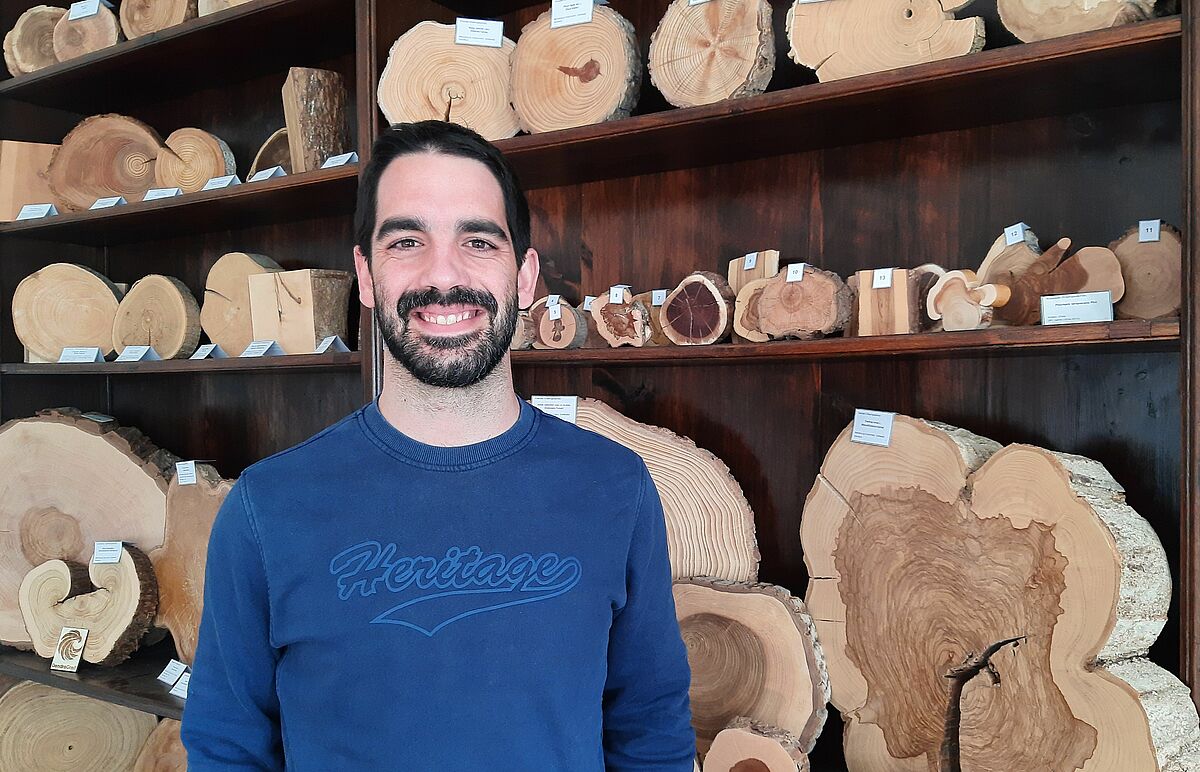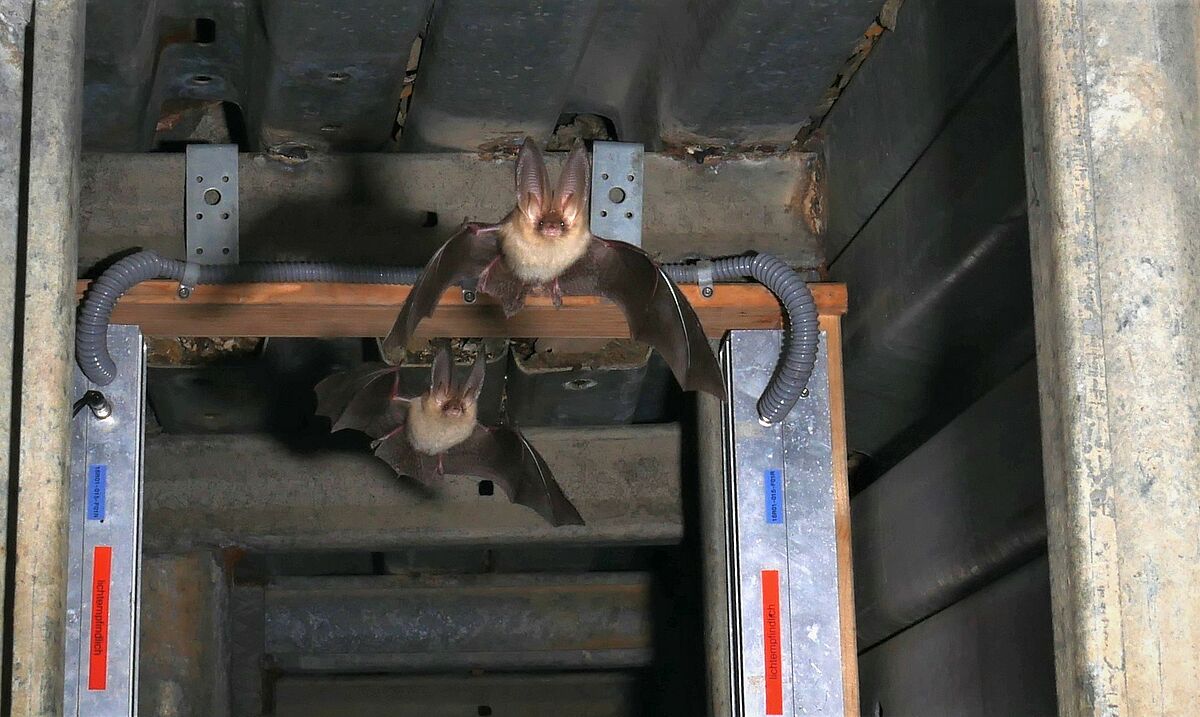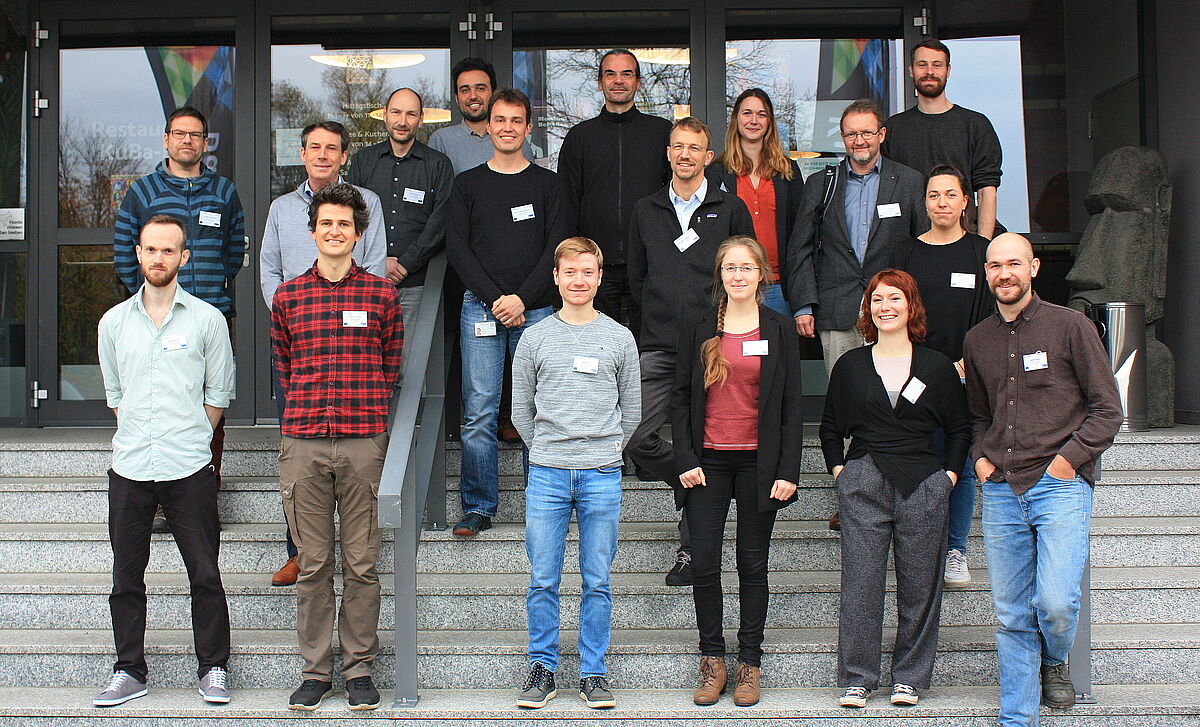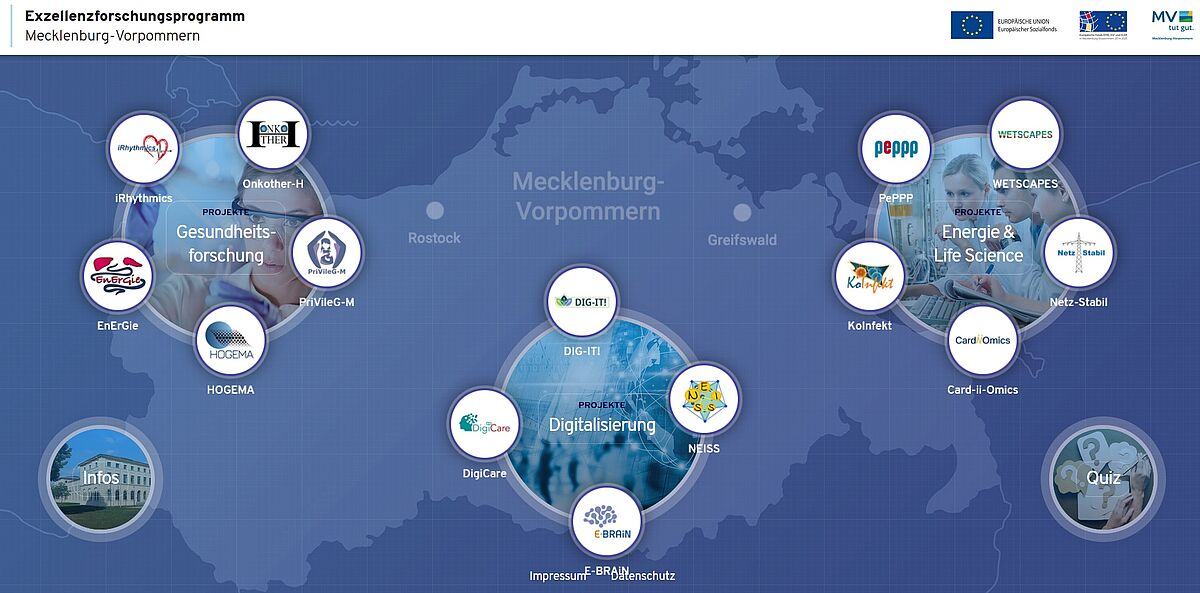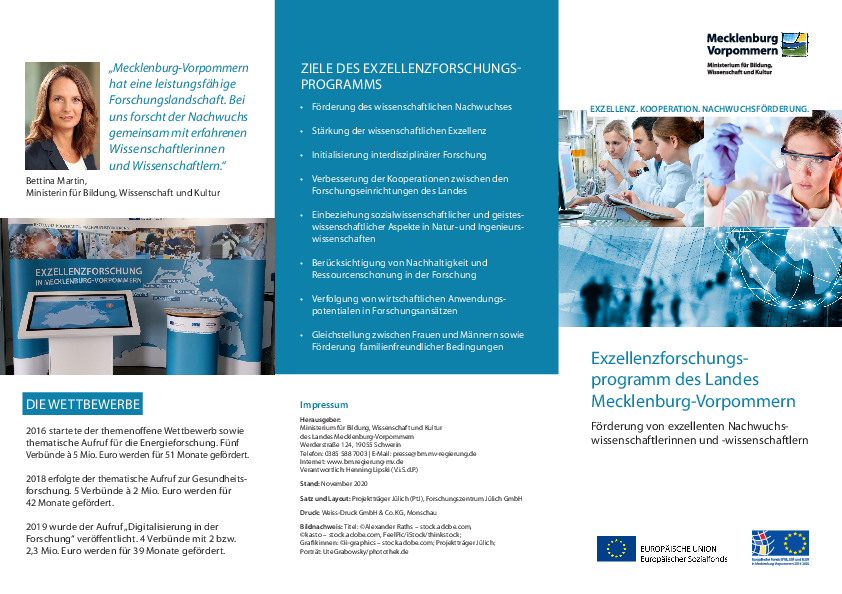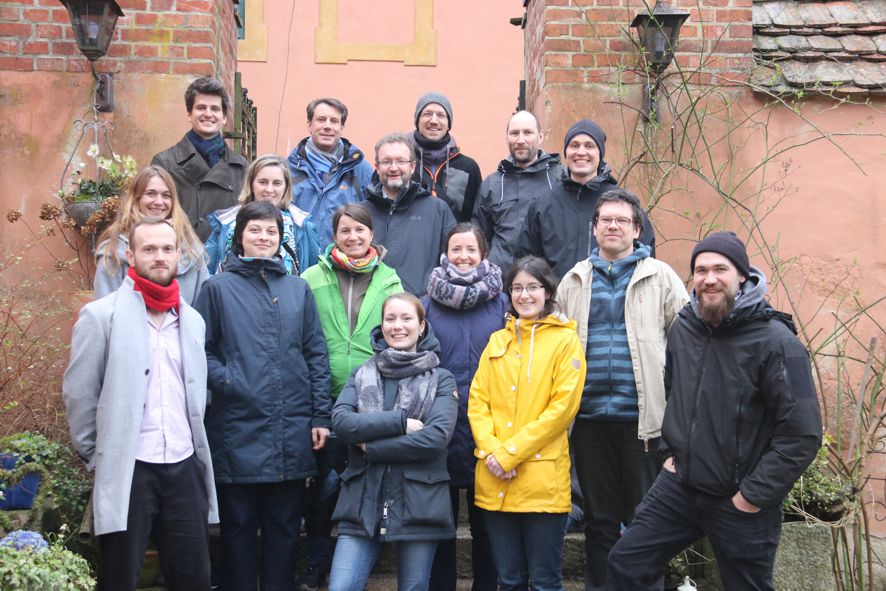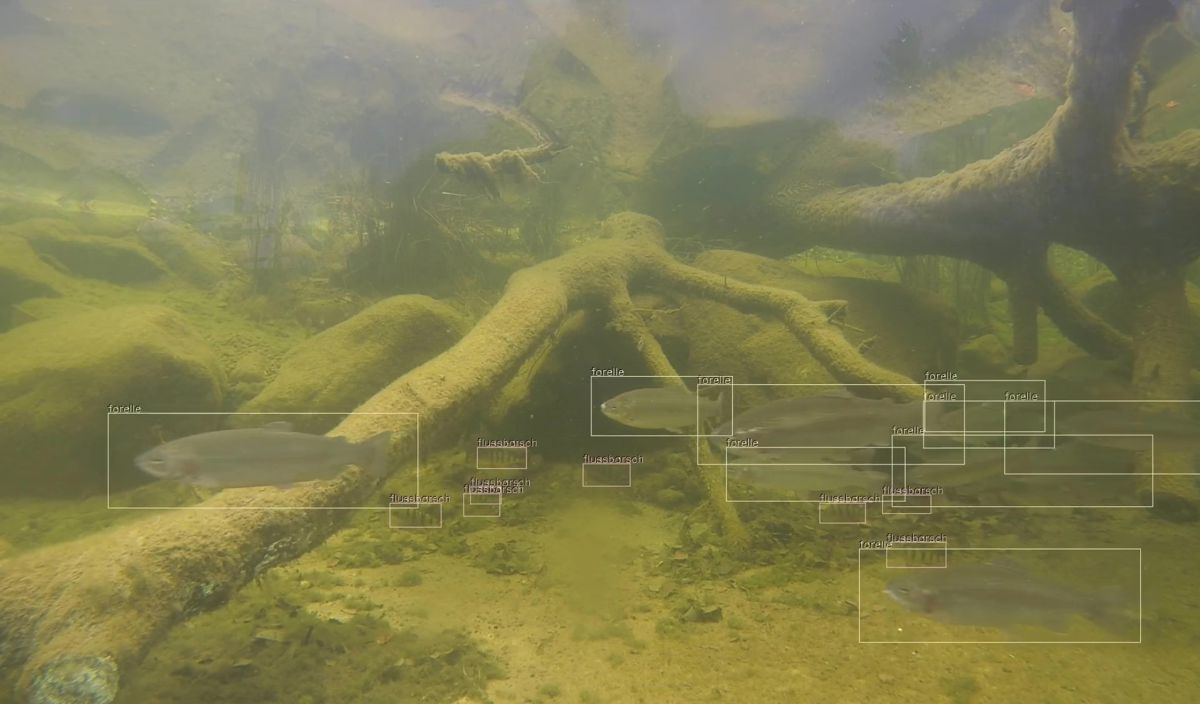August 23rd and 24th, 2022: DIG-IT! closing event with the joint research projects DigiCare, E-BRAiN and NEISS
The four joint research projects of the 3rd call for competition "Digitization in Research" of the State Excellence Initiative Mecklenburg-Vorpommern held a joint closing event in Rostock. In addition to representatives of the LAGuS, PTJ and the Universities of Greifswald and Rostock, the Minister for Science, Culture, Federal and European Affairs Bettina Martin was also a guest. During the two-day program, the joint projects presented their research and most important results, as well as exchanged ideas beyond their own areas of expertise. Another joyful part of the program was the awarding of the certificate of appointment to Prof. Dr. Yordanova by Minister Mrs. Martin.
February 2022: Scientist visiting the dendroecological lab
DIG-IT! welcomes Miguel García-Hidalgo who is visiting us from Spain. Miguel is doing his PhD at the University of Valladolid and is working on the use of artificial intelligence in wood anatomy. In his research he focuses on the effects of climate variation on wood growth using deep convolutional neural networks and deep learning. A warm welcome, Miguel!
German Bat Observatory reports on research results from the bat subproject
The article published on the website of the German Bat Observatory presents the results of a study published in 2021 on the influence of white flash from camera traps on short- or long-term bat activity, flight direction or echolocation behaviour.
The data of the study come from a 16-week experiment conducted as part of the DIG-IT! project by Gabriella Krivek et al. at the University of Greifswald. It could be shown that the flash has no influence on the mentioned parameters and is therefore a suitable and minimally invasive method in the monitoring of bat winter roosts. You can find the complete paper under Scientific Publications.
December 3rd 2021: Online DIG-IT! ethics seminar
In December, an interdisciplinary seminar took place on the topic of ethics in digitalisation with the focus on artificial intelligence. After an introduction by Dr. Mario Trouillier, Prof. Dr. Micha Werner presented fundamental philosophical considerations on the definition of responsibility, its accountability and limitations respecting A.I. In the following, Prof. Dr. Kerstin Thummes and Timo Lenk presented essential findings of their study on the perception of artificial intelligence and the spread of myths in this regard. After a short break, Prof. Dr. Gero Szepannek gave an insight into the application of machine learning in credit risk scoring with regard to the development of fair A.I. Sebastian Laacke then addressed algorithm-based decision-making as a source of epistemic injustice. This was followed by a concluding discussion with the seminar participants.
12. November 2021: DIG-IT! statusseminar in Greifswald
After the first status seminar being cancelled due to the pandemic, the second status seminar took place in person in Greifswald's Kulturbahnhof. To minimize the risk of infections, the meeting was only held internally. At the seminar, the researchers presented the to date results of their work in the sub-projects to the representatives of the State Ministry for Health and Social Affairs, the Ministry for Education, Science and Culture and the Projektträger Jülich. Further, difficulties were addressed, synergy effects highlighted and perspectives for the last funding year pointed out. Despite personnel changes in the sub-projects, the continuity of the project could be guaranteed and thus, the seminar ended with an optimistic view on the last stage that is now beginning.
August 3rd 2021: Research Excellence Program of Mecklenburg-Vorpommern presented in new web app
The projects participating in the Mecklenburg-Vorpommern Excellence Research Program now present themselves in a new german web app. The online application was created by Projektträger Jülich and provides an insight into the innovations researched in the fields of energy & life science, digitization and health research. Through short videos and photos, visitors can get an impression of the various projects. In addition, visitors can test their knowledge with a short quiz with questions from the represented disciplines. The web ap is only available in german.
July 2021: DIG-IT! is part of the Research Excellence Program of Mecklenburg-Vorpommern
DIG-IT! as a project for the digitization of natural complexity to solve ecological problems that are relevant for society has received a grant from the Research Excellence Program of the state of Mecklenburg-Vorpommern. The goal of the Research Excellence Program of the Ministry of Education, Science and Culture is the promotion of junior scientist.
More information about the Research Excellence Program you can find on the website of the Ministry of Education, Science and Culture (only in German).
The project "DIG-IT!" is funded by the European Social Fund and the Ministry for Education, Science and Culture of the federal state Mecklenburg-Vorpommern.
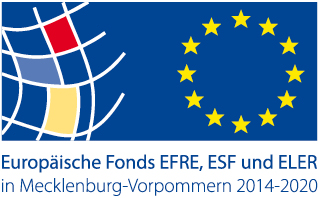
March 03-04th 2020: Team meeting in the moated castle Turow
In March 2020 the whole DIG-IT! team met in Turow for two days to discuss the current status of the project. Each sub-project presented its current work and the individual challenges were discussed. While many synergies between the projects were found, it also showed that each ecological application faces its own peculiarities that have to be considered. In the end of the meeting all project partners discussed how ecologists in general might be facilitated to apply deep learning tools in the future, which already outlines the planned development of the DIG-IT! tool-box.
September 18th 2019: DIG-IT! Kick-Off Meeting
For the start of DIG-IT!, the project was introduced to representatives of the Ministry for Education, Science and Culture, the Jülich Research Centre and the State Office for Health and Social Issues, and the aims and perspectives of the project were explained. The meeting was opened with a greeting by the rector of the university, Prof. Dr. Weber, as well as the dean of the Faculty of Mathematics and Natural Sciences, Prof. Dr. Weitschies.
July 12th 2019: Information on deep learning from the Fraunhofer Institute in Rostock
Even though not all positions could be filled at the start of the project, the DIG-IT! team met on July 12th 2019 for a first exchange of experiences and to get to know each other at the Fraunhofer Institute for Computer Graphics Research (IGD) in Rostock. Scientists from the institute introduced deep learning methods and automatic image analysis to the guests from Greifswald. In turn, the scientists from Greifswald introduced their research interests and explained what they hoped to achieve with the help of artificial intelligence.


